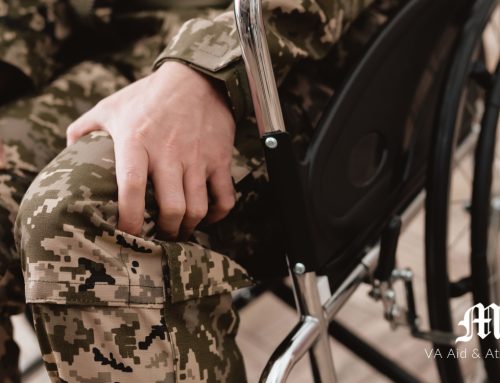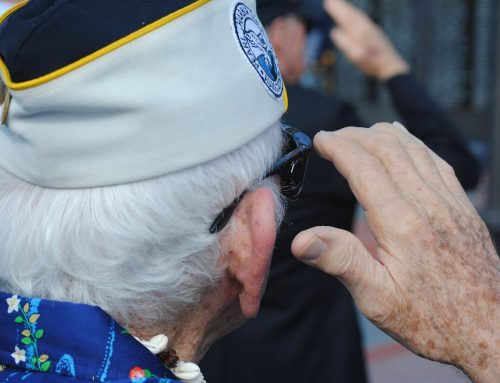As we grow older, our needs change, and it’s essential to plan for our future, including the possibility of requiring long-term care. For veterans and their surviving spouses, the Department of Veterans Affairs (VA) offers a special pension program known as Aid & Attendance, which provides financial support to help cover the costs of long-term care.
Understandably, this program raises numerous questions. In fact, many Florida veterans are unaware this program exists. You could be missing out on helpful benefits you earned through your military service.
Founding attorney Michelangelo Mortellaro and his team want our veterans to enjoy everything they have earned. Here are the top 10 frequently asked questions to a VA Aid & Attendance Benefits Attorney in Tampa.
Frequently Asked Questions Concerning VA Aid & Attendance Benefits
- What Is VA Aid & Attendance?
VA Aid & Attendance is a benefit that provides financial aid to eligible veterans and their surviving spouses who require the regular assistance of another person to perform daily activities, are bedridden, are patients in a nursing home, or have limited vision.
- Who Is Eligible for VA Aid & Attendance Benefits?
To be eligible for VA Aid & Attendance benefits, veterans must have served at least 90 consecutive days of active duty, with at least one day during a period of war, and meet specific financial and medical criteria. If they meet certain criteria, surviving spouses of veterans may also be eligible.
- What Are the Financial Requirements for VA Aid & Attendance?
The VA has specific income and asset limits that applicants must meet to qualify for Aid & Attendance benefits. It’s important to note that the VA does not count all income and assets when determining eligibility, so it’s essential to understand what is and isn’t included in these calculations.
- What Are the Medical Requirements for VA Aid & Attendance?
In addition to the financial requirements, applicants must also meet medical eligibility criteria. This typically involves the need for assistance with daily activities such as bathing, dressing, eating, or adjusting prosthetic devices due to the loss of a hand or leg. Applicants must also meet specific vision requirements or be bedridden to qualify for the Aid & Attendance benefit.
- How Much Can Veterans Receive in VA Aid & Attendance Benefits?
The amount of Aid & Attendance benefits varies depending on individual circumstances, such as whether the veteran has a spouse or dependent children. The VA sets maximum annual pension rates for Aid & Attendance, and the actual benefit amount is determined based on the applicant’s countable income and the difference between their income and the pension rate.
In 2024, the maximum Aid & Attendance benefit amount for veterans and their spouses is tied to the same cost of living adjustment as Social Security, which is 3.2%. For a single veteran with no dependents, the maximum benefit is $2300 per month. For a married veteran, the maximum benefit in 2024 will be $2727 per month. For a widowed spouse who requires care, the maximum benefit for 2024 will be $1478 per month.
- Can I Receive Social Security Benefits and VA Aid & Attendance Benefits Simultaneously?
Yes, veterans can receive both Social Security benefits and VA Aid & Attendance benefits. These are separate federal programs with different eligibility criteria and are not mutually exclusive.
- Are There Time Limits for Applying for VA Aid & Attendance Benefits?
There is no time limit for applying for VA Aid & Attendance benefits, and veterans or their surviving spouses can apply at any time. However, the application process can be lengthy, so it’s essential to start the process as soon as the need for long-term care arises.
In October 2018, the VA implemented a major rule change that introduced a three-year “look-back” period for transfers involving trusts, annuities, gifts, and jointly owned financial accounts. This change eliminated or made it more challenging to qualify a claimant quickly through certain avenues. For instance, if an asset was transferred after the rules change on October 18, 2018, the VA may consider it as income or an asset.
- Can I Receive Assistance with the VA Aid & Attendance Application Process?
Yes, various resources are available to help veterans and their surviving spouses navigate the application process for VA Aid & Attendance benefits. Mortellaro Law has knowledgeable VA Aid & Attendance Benefits attorneys in Tampa.
- Can Veterans Appeal if Their VA Aid & Attendance Application Is Denied?
If a veteran’s VA Aid & Attendance application is denied, they have the right to appeal the decision. The appeals process involves filing a Notice of Disagreement (NOD) and can ultimately lead to a hearing before a VA judge. Mortellaro Law has VA-accredited Elder Law Attorneys who can help you throughout the appeals process.
- Are VA Aid & Attendance Benefits Taxable?
No, VA Aid & Attendance benefits are not considered taxable income and are therefore not subject to federal or state income tax.
Schedule a Consultation with a VA Aid & Attendance Benefits Attorney in Tampa
VA Aid and Attendance benefits can provide crucial financial assistance to veterans and their surviving spouses who require long-term care. However, navigating the application process and understanding the eligibility criteria can be complex.
At Mortellaro Law, we have been assisting veterans and their families for more than a decade with estate planning, securing financial benefits, and protecting their assets accumulated over a lifetime. Call us today for a free consultation. Tell us your story and your goal, and we’ll explain how we can help.





